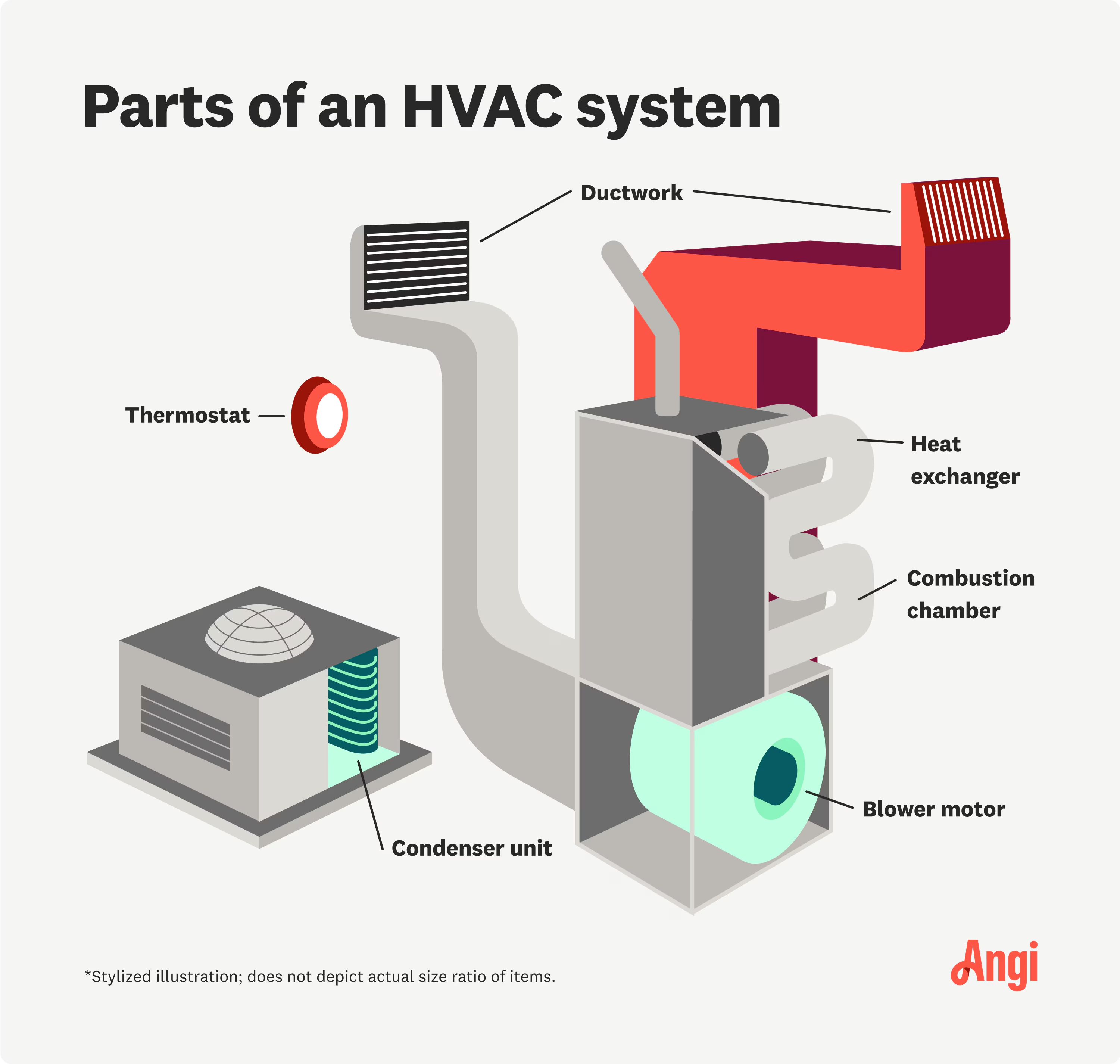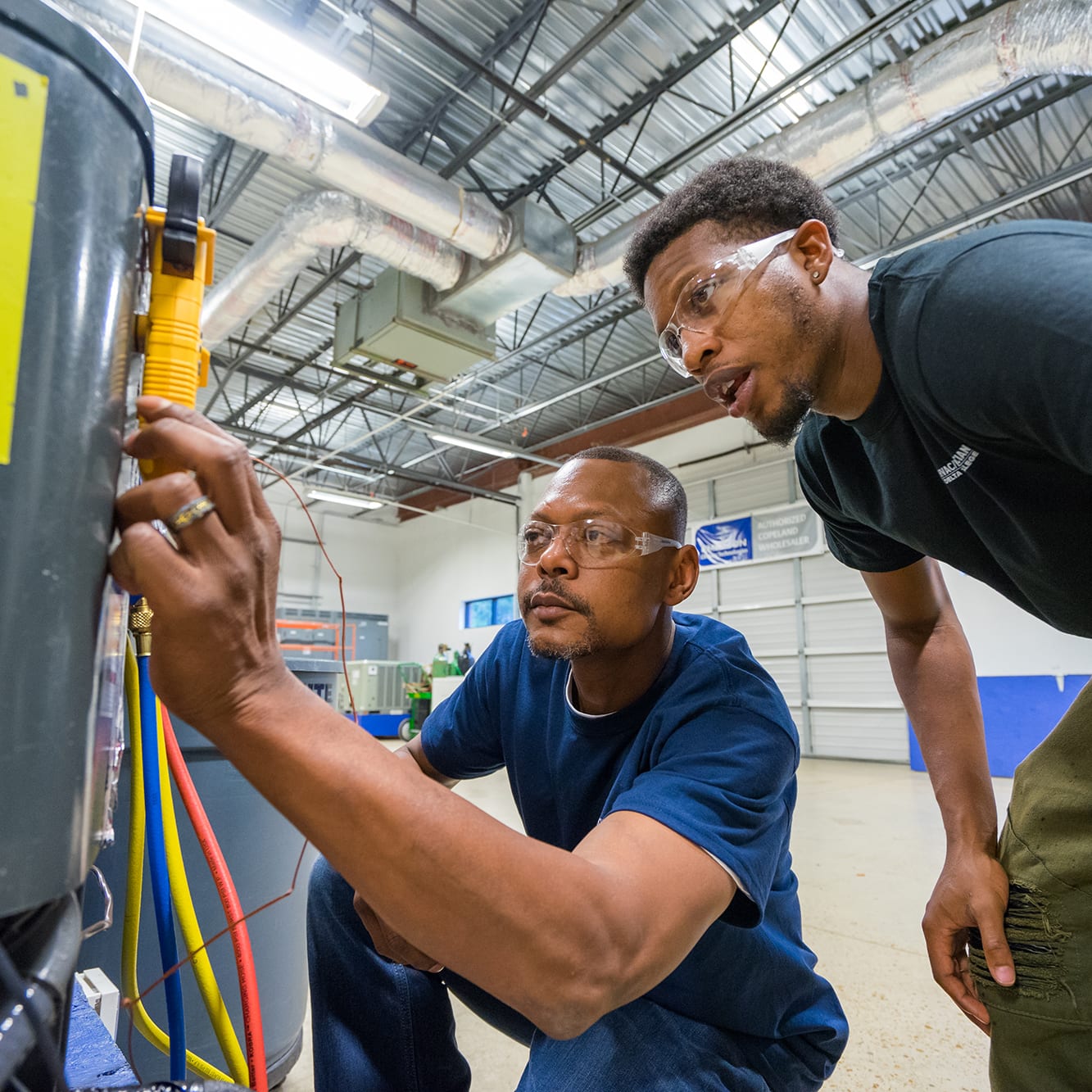An In-Depth Look at Heating And Cooling Providers and Their Impact on Power Performance and Cost Financial Savings
The role of cooling and heating services in enhancing energy efficiency and accomplishing cost financial savings is more crucial than ever, as property owners and organizations look for sustainable solutions in a progressively eco-conscious globe. With technological advancements like smart thermostats and high-efficiency parts, the potential for optimizing system efficiency is vast. Yet, the true effect of these technologies depends largely on regular maintenance and proactive problem monitoring. As we explore the elaborate partnership between heating and cooling systems and functional prices, consisting of the shift in the direction of eco-friendly choices, the question occurs: how can these techniques be efficiently executed to make the most of both economic and ecological advantages?

Value of Heating And Cooling Solutions
cooling and heating systems are a vital part of contemporary structures, playing a critical role in maintaining healthy and balanced and comfortable interior atmospheres. These systems, including home heating, air, and ventilation conditioning, are crucial for managing temperature, humidity, and air high quality, therefore guaranteeing the health of owners. Reliable cooling and heating systems add considerably to producing an optimum indoor environment, which is important for both commercial and property rooms.
In commercial structures, heating and cooling systems are indispensable to providing a secure and efficient environment. By controlling interior environment problems, these systems aid prevent the development of mold and the spread of air-borne contaminants, therefore safeguarding the health and wellness of workers and clients. In addition, in property settings, cooling and heating systems enhance living problems by using constant thermal comfort and enhancing indoor air high quality, which is essential for overall wellness.
Moreover, the design and upkeep of a/c systems have a direct effect on energy intake and functional expenses. Appropriately created and maintained systems can considerably decrease energy use, bring about decreased energy expenses and a smaller sized carbon impact. The efficiency of these systems hence plays a crucial function in promoting sustainability and power preservation within structures, highlighting their importance in the modern-day building landscape.
Developments in A/c Modern Technology
Innovation in heating and cooling innovation is reinventing the method structures take care of indoor environments, introducing a brand-new age of performance and control. Current improvements have concentrated on optimizing power consumption while boosting customer convenience. One significant development is the combination of clever thermostats, which make use of man-made knowledge to learn tenancy patterns and readjust temperature levels appropriately, reducing unnecessary energy use.
Variable Refrigerant Flow (VRF) systems represent another considerable leap onward. These systems enable exact temperature control in different areas of a building, enhancing convenience and lowering power waste. VRF technology is especially useful for huge commercial rooms, supplying adaptability and scalability.
In addition, the introduction of Internet of Things (IoT) gadgets has actually transformed heating and cooling systems into interconnected networks efficient in real-time data collection and evaluation. This connectivity enables anticipating upkeep, making certain systems run at peak effectiveness and reducing unforeseen downtime.
Moreover, improvements in materials and layout, such as making use of high-efficiency coils and compressors, have boosted general system performance - Heating Contractor. The adoption of eco-friendly refrigerants additionally underscores the industry's commitment to sustainability
These technical innovations are essential in reducing functional costs and environmental impact, setting new criteria for building environment monitoring.
Heating And Cooling Maintenance and Effectiveness
Guaranteeing optimum performance of HVAC systems expands beyond technical advancements; it also rests on effective maintenance practices. Routine maintenance is crucial for sustaining efficiency, decreasing power intake, and extending the lifetime of HVAC systems. The primary goal is to make certain that all components function at their peak capacity, therefore lessening power waste and maintaining constant interior convenience levels.
Regular upkeep jobs, such as cleansing or replacing air filters, checking cooling agent levels, and evaluating ductwork for leaks, are necessary for stopping unneeded pressure on the system. Blocked or unclean filters can block air movement, causing the system to function more difficult and consume even more energy. Furthermore, poor refrigerant degrees can decrease cooling down performance, resulting in greater operational costs.
Furthermore, periodic assessments by certified experts can recognize potential concerns prior to they escalate into costly repairs or system failures. These examinations usually include checking electric connections, calibrating thermostats, and making sure the general integrity of the HVAC system. By attending to minor troubles early, companies and homeowners can stay clear of unexpected malfunctions and enhance power effectiveness.
Cost-Effective Heating And Cooling Solutions
For those looking to get one of the most out of their air, ventilation, and home heating conditioning systems without breaking the financial institution, discovering cost-efficient heating and cooling services can make a considerable difference. One instant measure is to buy programmable thermostats, which enable individuals to establish specific temperatures for various times of the day, optimizing energy use and decreasing i loved this unneeded consumption. By automating temperature level adjustments, house owners can attain substantial financial savings on power costs.
Regular maintenance is one more critical part of cost-effective cooling and heating monitoring. Making certain that filters are cleansed or changed frequently, ductwork is secured, and devices are serviced by experts can protect against costly repairs and improve system durability. Preventive upkeep not only keeps system performance however likewise helps in avoiding unexpected malfunctions that can result in costly emergency situation repairs.
Furthermore, retrofitting existing systems with energy-efficient elements, such as variable speed motors or high-efficiency compressors, can be a prudent financial investment. These upgrades enhance operational performance, decrease energy use, and can commonly be implemented at a portion of the cost of a complete system substitute.
Ecological Influence Reduction
Minimizing the environmental impact of heating and cooling systems is critical in today's search of lasting living. Heating and cooling systems are considerable contributors to power usage, accounting for virtually 40% of energy use in commercial buildings. This power demand typically depends on fossil gas, resulting in greenhouse gas emissions and environmental degradation. Transitioning to a lot more reliable systems, such as those utilizing renewable resource resources, can considerably reduce these effects.
Technological innovations in a/c layout and procedure, consisting this page of the assimilation of smart thermostats and energy-efficient heatpump, are essential in decreasing carbon footprints. These advancements enable enhanced energy usage, lessening waste and improving overall system performance. In addition, embracing routine maintenance techniques guarantees heating and cooling systems operate at peak performance, further reducing unneeded energy intake.
In addition, the usage of eco-friendly refrigerants is essential, as traditional cooling agents, like CFCs and HCFCs, have been eliminated due to their ozone-depleting properties. Modern choices, such as hydrofluoroolefins (HFOs), offer lowered ecological dangers, aligning with international environmental methods. By welcoming these sustainable techniques, HVAC solutions can play a transformative role in decreasing environmental effects, promoting power performance, and promoting an extra lasting future.
Verdict

Furthermore, the style and maintenance of HVAC systems have a direct impact on power usage and functional expenses. Regular maintenance is vital for maintaining efficiency, lowering power consumption, and prolonging the life span of A/c systems. Heating and cooling systems are considerable factors to energy consumption, accounting for nearly 40% of energy imp source use in commercial buildings. Additionally, adopting routine maintenance practices makes sure Heating and cooling systems run at peak performance, additional curtailing unneeded energy consumption.
The transition to environmentally friendly Cooling and heating systems better reduces operational costs and advertises sustainability. (Heating Contractor)
Comments on “Air Conditioning Repair Service to Keep Your Home Awesome and Comfortable”